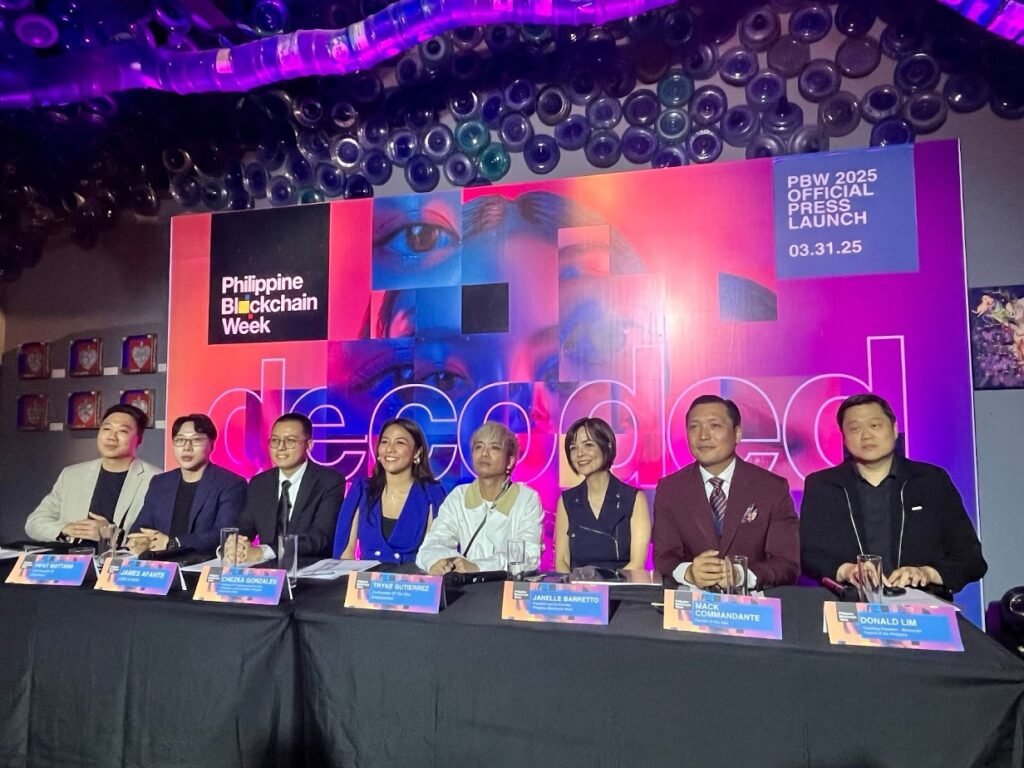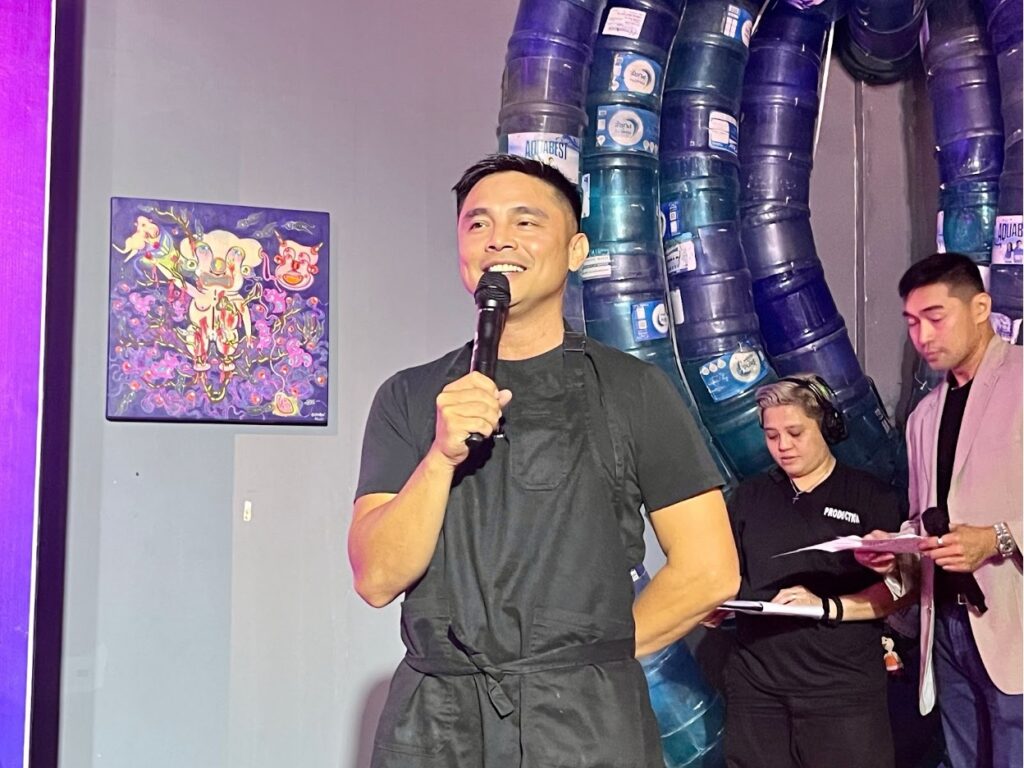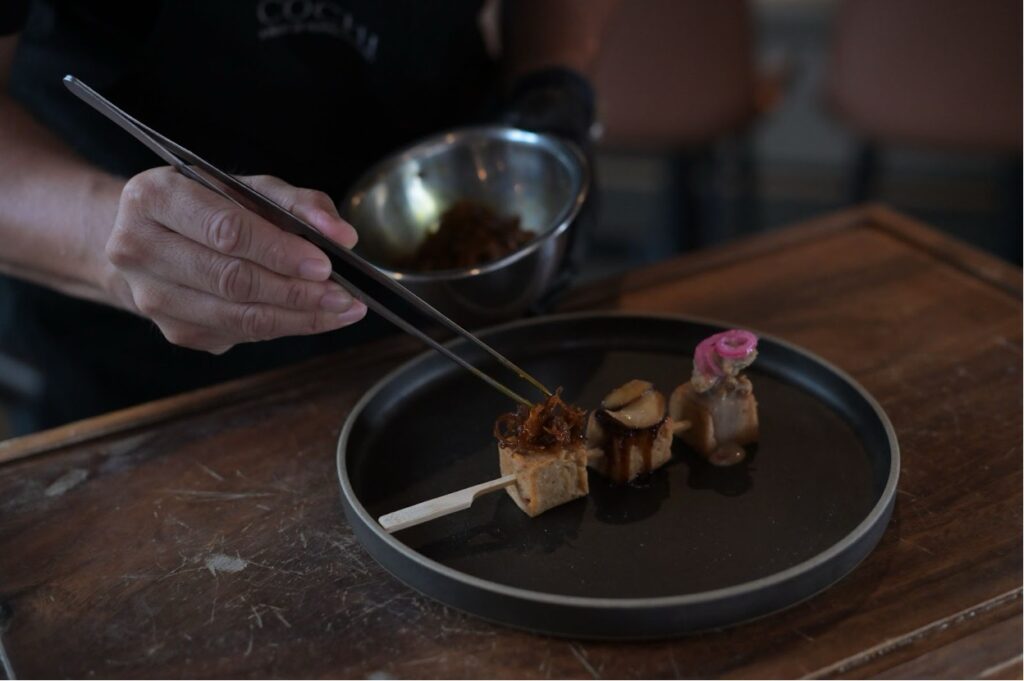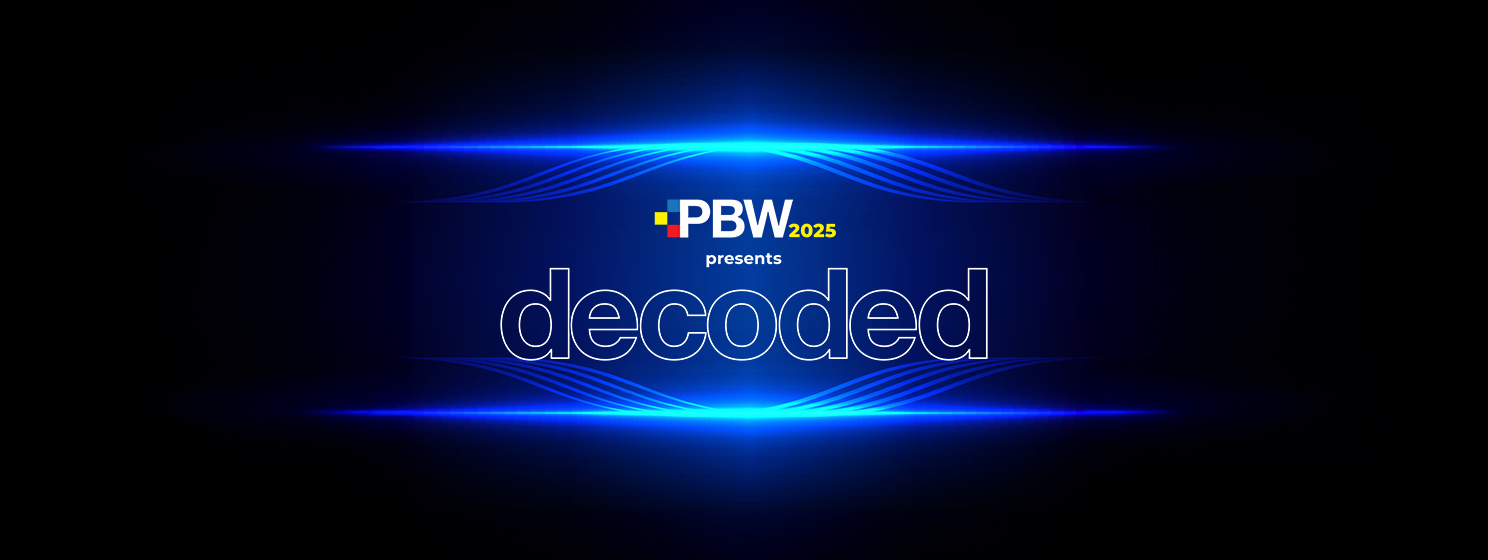|
Getting your Trinity Audio player ready...
|
The Philippine Blockchain Week (PBW) is making a comeback this June, aiming to showcase the practical applications of blockchain technology. Organized by the Blockchain Council of the Philippines (BCP), the event will bring together experts, government officials, and businesses to discuss how blockchain is transforming industries.

Donald Lim, Founding President of the BCP, emphasized the importance of making blockchain accessible to the general public.
“The blockchain alone is such a big word, but then we begin to realize how much blockchain, if done and implemented right, has a big positive effect on our country,” Lim said.
He noted the increasing adoption of blockchain in the Philippines, with government agencies such as the Securities and Exchange Commission (SEC) and the Department of Budget and Management (DBM) exploring its potential.
“We’re seeing many government offices trying their bits and pieces, working on blockchain,” he said.
The Philippines has also become one of the biggest users of digital asset trading and blockchain gaming.
“It’s only right that we continue pushing forward,” Lim said. “All of us here who are believers in Web3 technology need to evangelize our country and the rest of Asia.”
This year’s theme is “DECODED.” The PBW said it embodies the event’s commitment to unraveling blockchain’s intricacies and unlocking its broad possibilities. Organizers said that widely embraced by Web3 communities, they want to focus on decoding key topics like decentralized finance (DeFi), GameFi, decentralized physical infrastructure network (DePIN), non-fungible tokens (NFTs), and decentralized autonomous organizations (DAOs). They added that the event will connect these technologies to real-world applications in industries such as healthcare, real estate, education, commerce, retail, and supply chain logistics.
Government adoption and transparency
Blockchain’s ability to enhance transparency and security is one of its biggest draws. Paul Soliman, trustee of the BCP, revealed that the DBM is preparing to launch a blockchain-based system for tracking government budgets.
“DBM will launch its blockchain application for special allotment release orders (SAROs). All government budget releases will be on the blockchain,” Soliman said. “No one can edit it; no one can duplicate or alter the amount of the budget.”
Although the system was initially set to go live this month, Soliman noted that the launch was delayed due to migration issues within the government.
“We need to postpone it this month, but it’ll be next month, April,” he said. “It’s a public portal where you can see all the budgets.”
Fighting fraud with blockchain
The event will also highlight blockchain’s role in financial security. Ida Tiongson, trustee of the BCP, pointed out that fraud, especially deepfake-related fraud, is a growing global issue.
“Deepfake is the number one problem worldwide when it comes to fraud,” she said. “Fraud is costing us $6 trillion globally.”
Tiongson cited India’s use of blockchain in open finance as an example of how the technology can reduce fraud.
“If you put identification on blockchain, it’s anti-fraud,” she said. “In India, blockchain-based e-KYC has reduced fraud by 75%.”
Major financial institutions are also recognizing the value of blockchain.
“JP Morgan, a $4 trillion company operating in a hundred countries, has launched Onyx, which uses blockchain for remittances and e-KYC,” she said. “Blockchain is already working, and big companies, including insurance firms, are using it.”
Blockchain in business and food innovation

PBW is also exploring how blockchain can be integrated into different industries, including food and hospitality. Actor and restaurateur Marvin Agustin discussed his collaboration with PBW to innovate Filipino cuisine using blockchain.
“We have distinct flavors in different regions of the Philippines, from Luzon, Visayas, and Mindanao,” Agustin said. “What better way to innovate than incorporating these flavors into blockchain-powered food experiences?”
Agustin described his unique dishes, such as an elevated sisig using plant-based oyster batter and pineapple caviar, as well as an innovation of Mindanao’s chicken pastil wrapped in banana leaves with coconut caviar.

“We’re excited about this collaboration with Philippine Blockchain Week,” he said.
Available only through digital currency payments via Maya or GCash, these fishballs introduce attendees to real-world digital transactions. Each purchase is recorded on the blockchain, ensuring transparency and authenticity. Adding a collectible twist, every order comes with an NFT minted on BayaniChain, the Philippines’ homegrown blockchain platform, with designs by emerging Filipino artists.
A unified effort for blockchain adoption
Lim emphasized that blockchain adoption requires collaboration between the public and private sectors, as well as support from users.
“Blockchain can only succeed if the government, the public sector, the private sector, and users all work together,” he said.
He compared blockchain adoption to the early days of the Internet.
“When the Internet first came, it was seen as evil,” he said. “Now, with artificial intelligence (AI) coming in, which will make blockchain adoption easier and faster, we’re going to see blockchain move leaps and bounds.”
“Foreign participants are always surprised at how supportive the Philippine government is of blockchain,” Lim said. “We’re speaking in Congress, helping with the blockchain bill, working with the SEC—these are all steps toward making blockchain mainstream.”
“For mass adoption to happen, collaboration and timing are essential, and the partnerships help in creating blockchain use cases for the Philippines. We need to seamlessly integrate these ideas into accessible and relatable scenarios, demonstrating how blockchain benefits everyone,” Janelle Barretto, Co-Founder of Philippine Blockchain Week, said.
“We’re not just positioning the Philippines as the blockchain capital of Asia,” Lim said. “We’re making it happen by working together.”
Watch: The Philippines is moving toward blockchain-enabled tech

 02-25-2026
02-25-2026 




